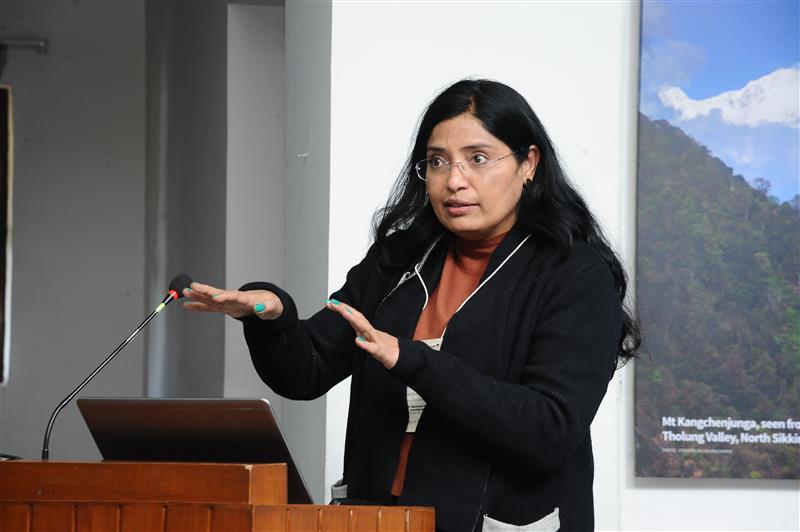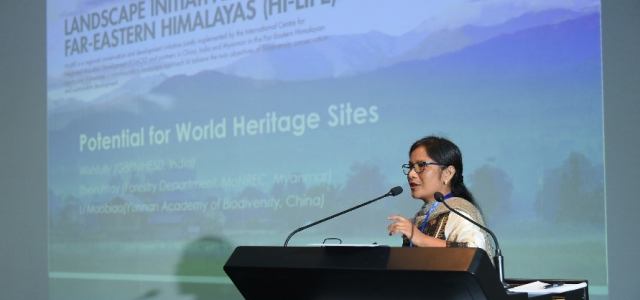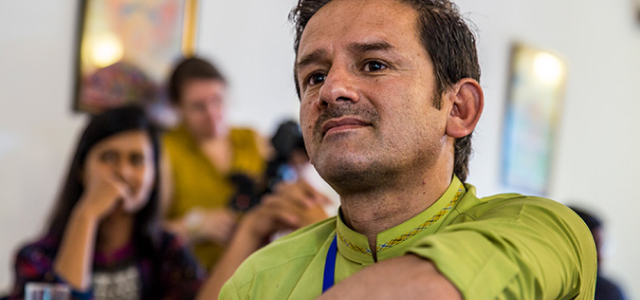Learning from women in open geospatial initiatives across the Himalayas
In October, I was elated to receive an invitation from the Himalayan University Consortium (HUC) Secretariat, to participate in the State of the Map Asia 2023 and FOSS4G Conference. In November, I attended the conference in Thailand, where I showcased my work in geospatial mapping the Hindu Kush Himalaya (HKH). This conference not only enriched my approach to community engagement and provided new tools and perspectives on geospatial initiatives, but it was also a cross-cultural experience enabling me to connect with and learn from an energetic team – comprising of all women – from Afghanistan, Pakistan, Bhutan, and Bangladesh. This was not just a conference, it was an opportunity to work with and learn from those beyond the landscape of my country, India.
Key learnings
Despite my extensive experience in field for over 23 years, the conference offered fresh perspectives on geospatial mapping. It inspired me to reflect on ways to enhance my community engagement processes, ensuring inclusivity and a futuristic approach to technology and connecting to the larger landscape and people. The conference encouraged me to view geospatial mapping from the perspective of universal accessibility, and deepened my understanding of government and local communities both as owners and users of data, Moreover, it emphasized the significance of collaborations and community processes in the field.
It was quite eye-opening to learn about the different projects on open geospatial data undertaken by young students, professionals, and organisations. It was amazing to see how connected the mappers were with each other. Although geographically apart, the mappers were so passionate about each other’s works and bonded like they were close friends. Overall, the conference fostered a sense of global community, transcending borders and creating a platform for shared experiences.
Sharing collective experiences
During the conference, we shared our collective as well as individual experiences on mountain-focused mapping and Hindu Kush Himalaya (HKH)-specific activities. Noteworthy presentations included Dilshad Bano, Aga Khan Agency for Habitat Pakistan and Samira Noori, Citizens Organization for Advocacy and Resilience Afghanistan discussing their work on geospatial solutions for climate change and disaster resilience in the HKH region.
Chimi Dema, an English and Research instructor at the School of Interactive Design and Development, Gyalpozhing College of Information Technology (GCIT), Bhutan, and Nusrat Jahan Nilima, a graduate student at the Department of Disaster Science and Climate Resilience, University of Dhaka, Bangladesh, both recipients of “She Leads She Inspires Grant Fellowship 2023”, shared their experiences in mapping emergency response routes and healthcare facilities.
Their work underscored how Cross-cutting Working Group on Open Geospatial and Community-led Mapping was breaking domain boundaries to reach larger users, what ground requirements look like, and how the youth perceive opportunities and tackle challenges on the ground. Chimi Dema explored innovative approaches mapping and emergency response routes, ensuring quick and efficient evacuation during crises. Nusrat Jahan Nilima provided invaluable insights into the equipment, skills, and training necessary for her ground-level work, along with her plans for executing upcoming projects.
As the concluding speaker, I shared insights into my work in the HKH. My presentation “We can show and we can tell, narratives of mapping local and Indigenous knowledge with community and youths in Lower Eastern Himalayas”, focused on my experience with Indigenous communities, women, elderly and youths in the region and the need to co-map with community members so that our processes are inclusive and go beyond technology and mainstream legends used in the mapping. My presentation also highlighted the importance of collective work for the larger landscape beyond country boundaries to understand shared issues and contribute to making meaningful data for the HKH community. As a team of HUC fellows, we continued to reflect and deliberate on each of our work profiles, experiences, and limitations and the best way to shape our cross-cutting workgroup.
Moving forward
With the exposure, learning, mentorship, and friendships cultivated during the conference, we are now a few steps away from shaping our collaborative agenda for the Cross-cutting Working Group on Open Geospatial and Community-led Mapping, I am optimistic that HUC’s cross-cutting workgroup will be able to make meaningful contributions to the field.
Acknowledgements



